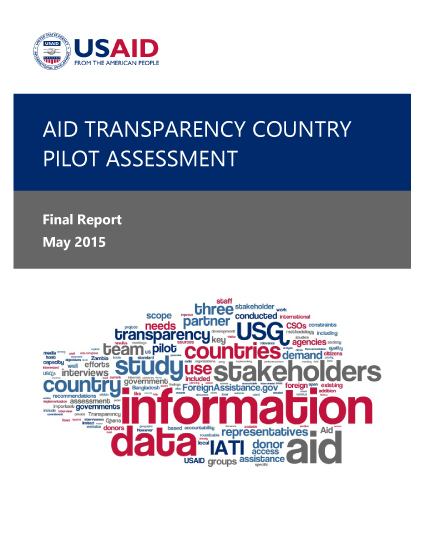Speeches Shim
Representatives from the Jesuit Centre for Theological Reflection in Zambia and International Institute for Information and Communication Technologies Journalism in Ghana discuss impacts of USAID transparency efforts. Credit: Gregg Rapaport/USAID
USAID is taking a leading role in helping the U.S. Government further its commitment to enhancing international aid transparency as a way of increasing the efficacy of development efforts and promoting international accountability. Quality information and timely reporting about development cooperation is helping all stakeholders - governments, civil society organizations, private citizens and donors alike - to manage and monitor aid resources more effectively.
To further this goal, USAID conducted the three pilot studies with the following objectives:
- Assess demand for information and current access to data on aid flows from a wide range of stakeholders in partner countries, including the executive branch, legislature, parliamentarians, civil society organizations, private companies, media, researchers, universities;
- Compare the specific information demands to the data already reported by the U.S. Government to the Foreign Assistance Dashboard and the IATI Registry;
- Review the capabilities and assess capacity constraints of different stakeholders groups to effectively utilize the data;
- Inform stakeholders and promote the use of IATI and the Foreign Assistance Dashboard; and
- Put forth recommendations to inform the development impact of U.S. Government aid transparency efforts.
The full report contains:
- Executive Summary
- Introduction
- Methodology
- Zambia Country Report
- Ghana Country Report
- Bangladesh Country Report
- Key Findings and Conclusions
- Recommendations


Comment
Make a general inquiry or suggest an improvement.